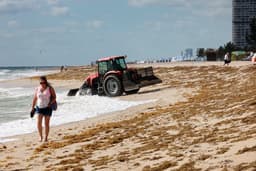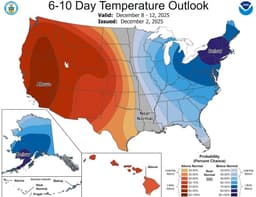Home / Environment / Greenland Ice Loss Threatens Florida Coastlines
Greenland Ice Loss Threatens Florida Coastlines
25 Nov, 2025
Summary
- Greenland's glaciers are rapidly receding due to rising global temperatures.
- Arctic warming is occurring four times faster than the global average.
- Florida has already seen up to eight inches of sea level rise since 1950.

Rapid ice loss from Greenland's glaciers, driven by accelerating global temperature increases, poses a significant threat to coastal communities, including those in Florida. The Arctic region is warming at an alarming rate, approximately four times faster than the rest of the planet, a phenomenon known as Arctic amplification.
This amplified warming leads to accelerated glacier melt. As ice melts on land, the water runs off into the ocean, directly contributing to rising sea levels. Experts warn that this could lead to meters of sea level rise, drastically reshaping coastal areas like Florida.
In response, global efforts focus on reducing carbon emissions and promoting renewable energy. Coastal communities are also implementing adaptation strategies, such as constructing physical barriers and restoring natural defenses like mangrove forests, to mitigate the impacts of rising oceans.




